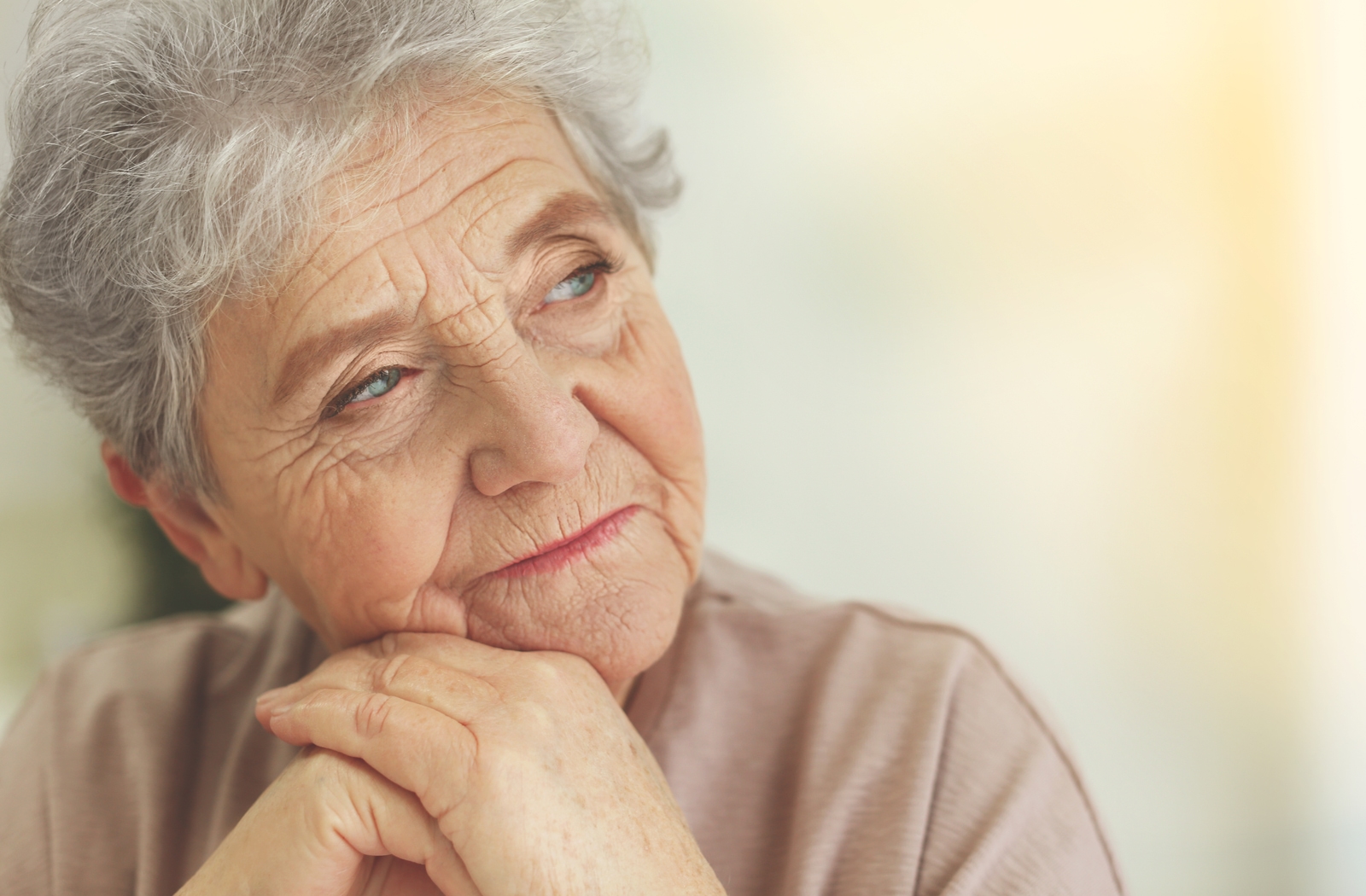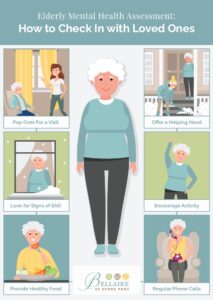When the weather gets cold and the autumn breeze turns to flurries of snow, it can be hard for seniors to stay active and keep up with friends.
Winter weather can bring about some unique issues for seniors. Icy and slippery ground can increase the risk of falling, and for those with dementia or Alzheimer’s, getting lost outside in the cold can lead to hypothermia.
For seniors in care, these risks are lower since a wonderful team surrounds them every day. Still, the winter can lead to isolation, and it’s important for family members to keep in contact with elderly loved ones to be sure they are happy and healthy.
Read on to learn more about assessing the mental health of your senior loved ones, and how to check in on them this winter.
Pop Over For a Visit
Nothing says you love them like a hug, a hot cup of coffee, and a good chat! The winter can be a time of isolation. Getting around in the cold is challenging, and the chilly weather keeps people indoors.
When winter comes, be sure to include visiting with loved ones on the to-do list. Pop over and say hello, even if it’s just for a short while. Human interaction is important to combat loneliness.
Not only does a visit improve mental health, but it also improves physical health too. Loneliness increases seniors’ risk of adverse health effects.
Offer a Helping Hand
For some people, asking for help is out of the question. But, if help is offered, a loved one just might take you up on it.
When seniors are struggling to perform the same tasks they used to do, there may be some anxiety or depression around asking for help. Why not suggest doing that holiday baking together? Or going grocery shopping as a team?
Check to make sure your loved one has the necessary supplies for a cold winter. It can be harder to get out and about as a senior, so ensure their pantry is stocked and they have everything they need. Bundling up to go out and get a couple of items might be challenging.
Look for Signs of SAD
When the seasons change, some people get SAD. Seasonal Affective Disorder (SAD) is depression that usually occurs in the late fall and continues into the winter months.
Here are some signs and symptoms of SAD to be on the lookout for:
- Low energy or tiredness
- Depression or feelings of hopelessness
- No interest in formerly enjoyed activities
- Problems sleeping or oversleeping
- Changes in appetite or weight
- Feeling agitated more than usual
While it is relatively normal to feel a bit glum as the cold weather comes on, SAD is something different. It lingers for more than just a few days or a week. When helping your loved one stay in good mental health this winter, it is important to recognize the signs of SAD and learn how to combat them.
Opening up the curtains and letting some light in, or investing in a light therapy lamp can help! When dining or out for coffee, be sure to sit next to windows with natural light.
Encourage Activity
Staying active is a great way to fend off Seasonal Affective Disorder. Going for walks in the sunlight and taking in the fresh air can alleviate depression.
Encourage the seniors in your life to head outside. Just be sure to help them bundle up if it’s cold out, and be mindful of any slippery or icy patches in your path. Falls can be very detrimental for seniors so safety should be top of mind.
If it’s too cold for an outdoor activity, there are plenty of other ways to be active in the winter. Baking or cooking, or crafting and painting are fun things to do together to enjoy each other’s company. Yoga classes or swimming lessons can also help encourage activity when it’s too chilly to head outside.
Provide Healthy Food
Food can impact mood! Dark, leafy green vegetables can help to decrease symptoms of Seasonal Affective Disorder. Fatty fish like salmon or tuna are highDial-up in omega-3 acids and vitamin B12 which can both help to decrease depression.
Who doesn’t love chocolate? To use chocolate as a mood-booster, stick to the kind with 70% cocoa. Munching on this delicious dessert at any time of day can release endorphins that improve mood.
Of course, the best meals are the ones we eat together. So, whether it’s a holiday gathering or a post-Christmas communal meal, don’t leave your senior loved one eating alone. Restaurant-style dining, like the type available at Bellaire at Stone Port, can help your loved one feel surrounded by friends and family.
Regular Phone Calls
Seniors might not be tech-savvy enough for a Facetime conversation or a Zoom call, and text messaging might be out of the question too. So meet your elderly loved one where they’re at—with a good, old-fashioned phone call.
Sometimes, the ring of a phone is all it takes to remind someone that they are loved. Phone calls tell your loved one that you’re thinking about them. If you’re far away, hearing someone’s voice provides the personal touch that sending a text message just doesn’t hold a candle to.
Texts are easily ignored, and emails may go unchecked. But a ringing telephone is hard to walk away from, and even if you get the answering machine, you can still leave a voice message to say hello.
Dial up the seniors in your life this winter, to show them how much you care. You can also call the friendly care staff of Bellaire at Stone Port to get an update on how your loved one is doing. Sometimes, it can be reassuring to hear from the people who have daily contact with them.





